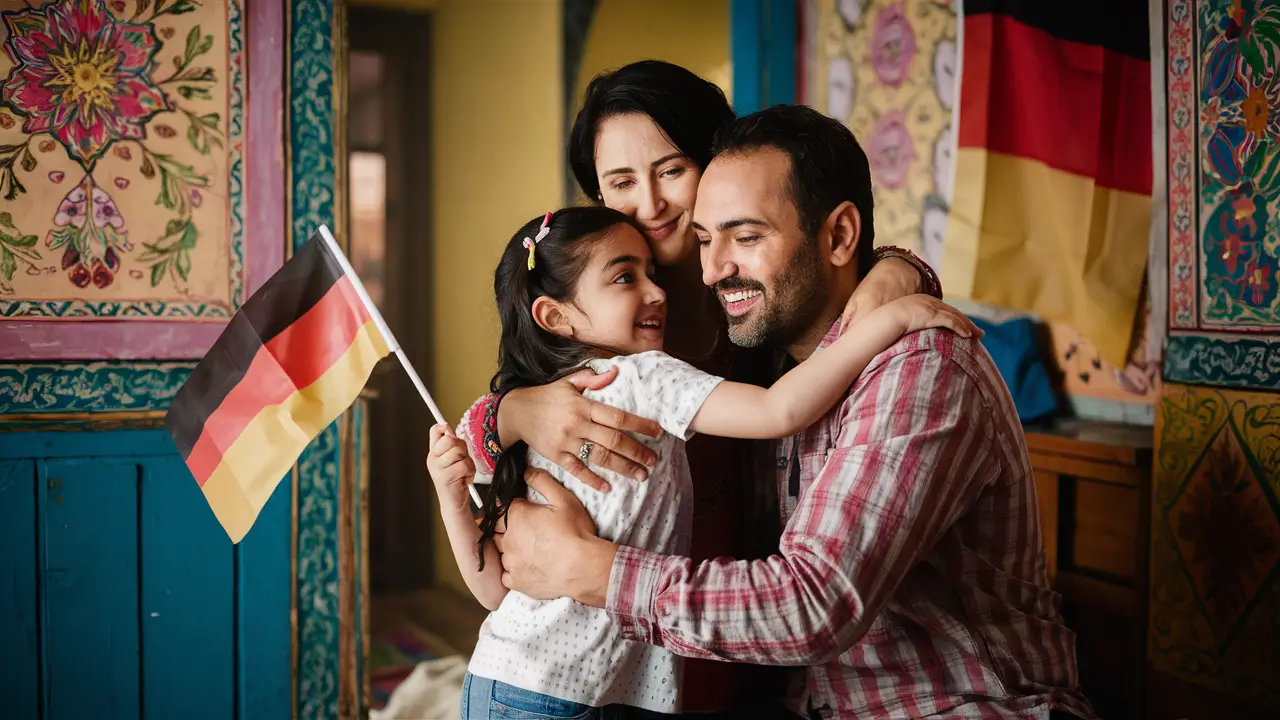In today’s interconnected world, many families dream of building a new life in Germany. The process of German naturalization for family members offers a pathway to this dream. This article delves into the intricacies of obtaining German citizenship as a family unit. We’ll explore the requirements, benefits, and recent changes in the law.
- The Family-Focused Approach to Citizenship
- Spousal Naturalization: A Faster Track
- Navigating Citizenship for Children
- Language Requirements
- Residency: Laying Down Roots
- The Naturalization Test: Proving Integration
- Dual Citizenship
- Financial Independence
- Adopting German Values
- Simplifying German Naturalization of Family Members
- Building a Multicultural Germany
The Family-Focused Approach to Citizenship
Germany recognizes the importance of family unity in the naturalization process. The country has implemented special rules for family members seeking citizenship. These regulations aim to simplify the process and keep families together.
German naturalization of family members often begins with one spouse obtaining citizenship. This can trigger a domino effect, making it easier for other family members to follow suit. The process considers various factors, including age, residency, and language proficiency.
Spousal Naturalization: A Faster Track
For spouses of German citizens, the path to naturalization is expedited. The standard eight-year residency requirement is reduced to just four years. This applies to both married couples and registered life partners.
Key points for spousal naturalization:
- The partnership must have existed for at least two years in Germany.
- The German spouse must have held citizenship for a minimum of two years.
- The couple must prove their relationship is genuine, not a marriage of convenience.
These provisions reflect Germany’s commitment to family reunification and integration.
Navigating Citizenship for Children
The German naturalization of family members includes special considerations for children. The process differs based on the child’s age and circumstances.
Children Under 16
For children under 16, the naturalization process is relatively straightforward. Here are the main requirements:
- The parent seeking naturalization must have custody.
- The family must live together in Germany.
- The child should be able to communicate in German for everyday situations.
- A three-year residency in Germany is sufficient.
These relaxed rules aim to ensure children can integrate seamlessly into German society.
Teenagers: 16 to 18 Years Old
Older children face slightly different requirements:
- They must meet all standard naturalization criteria.
- An eight-year residency in Germany is necessary.
- They need to pass the naturalization test.
This approach balances the need for integration with recognition of the child’s growing independence.
Language Requirements
Language proficiency plays a crucial role in the German naturalization of family members. While adults need to demonstrate B1 level German skills, children have more flexible requirements.
| Age Group | Language Requirement |
|---|---|
| Adults | B1 level German proficiency |
| Children under 16 | Ability to communicate in everyday situations |
| Teenagers 16-18 | B1 level German proficiency |
This table illustrates the varying language requirements for different age groups. The flexibility for younger children acknowledges their capacity for rapid language acquisition.
Residency: Laying Down Roots
Residency requirements form a cornerstone of the German naturalization process for family members. The duration of stay demonstrates commitment to life in Germany.
For most applicants, an eight-year residency is required. However, family members benefit from reduced timeframes:
- Spouses of German citizens: 4 years
- Children under 16: 3 years
- Children 16-18: 8 years
These varied requirements reflect the unique circumstances of different family members.
The Naturalization Test: Proving Integration
The German naturalization test is a key component of the German citizenship process. It assesses knowledge of German law, society, and culture. Family members over 16 must take this test as part of their citizenship application.
The test consists of 33 multiple-choice questions. Applicants must answer at least 17 correctly to pass. This requirement ensures that new citizens understand their rights and responsibilities in German society.
Dual Citizenship
Recent changes in German law have expanded opportunities for dual citizenship. Previously, most applicants had to renounce their original citizenship. Now, many can retain their previous nationality while becoming German citizens.
This change particularly benefits families with diverse backgrounds. Children can now more easily maintain connections to their parents’ home countries while fully integrating into German society.
Financial Independence
German naturalization of family members requires proof of financial stability. Applicants must show they can support themselves and their dependents without relying on social welfare.
For families, this often means:
- Stable employment for at least one parent
- Adequate housing for the entire family
- Health insurance coverage for all family members
These requirements ensure that newly naturalized families can actively contribute to German society.
Adopting German Values
Part of the naturalization process involves a commitment to German constitutional values. Family members over 16 must sign a declaration affirming their loyalty to the German Basic Law.
This commitment includes:
- Respect for democracy and the rule of law
- Adherence to human rights principles
- Rejection of extremism and violence
By making this declaration, families demonstrate their readiness to fully participate in German civic life.
Simplifying German Naturalization of Family Members
Germany continues to refine its approach to family naturalization. Recent legislative changes aim to streamline the process and make it more accessible.
Key improvements include:
- Shorter residency requirements for certain groups
- More flexibility in language proficiency assessments
- Expanded opportunities for dual citizenship
These changes reflect Germany’s commitment to attracting and retaining skilled immigrants and their families.
Building a Multicultural Germany
The German naturalization of family members plays a vital role in shaping the country’s future. By welcoming diverse families, Germany enriches its cultural tapestry and strengthens its economy.
As more families embark on the journey to German citizenship, they contribute to a vibrant, inclusive society. Their experiences and perspectives help build bridges between cultures and foster mutual understanding.
In conclusion, the path to German citizenship for families is becoming increasingly accessible. While challenges remain, the benefits of naturalization are clear. Families who choose this path gain not just legal status, but a true sense of belonging in their new home.
By embracing German citizenship, families open doors to new opportunities. They become full participants in Germany’s democratic process and social fabric. This journey of naturalization strengthens both the families involved and the nation as a whole.
As Germany continues to evolve its citizenship policies, the future looks bright for families seeking to make this country their permanent home. The German naturalization of family members represents not just a legal process, but a heartfelt welcome to a new way of life.




